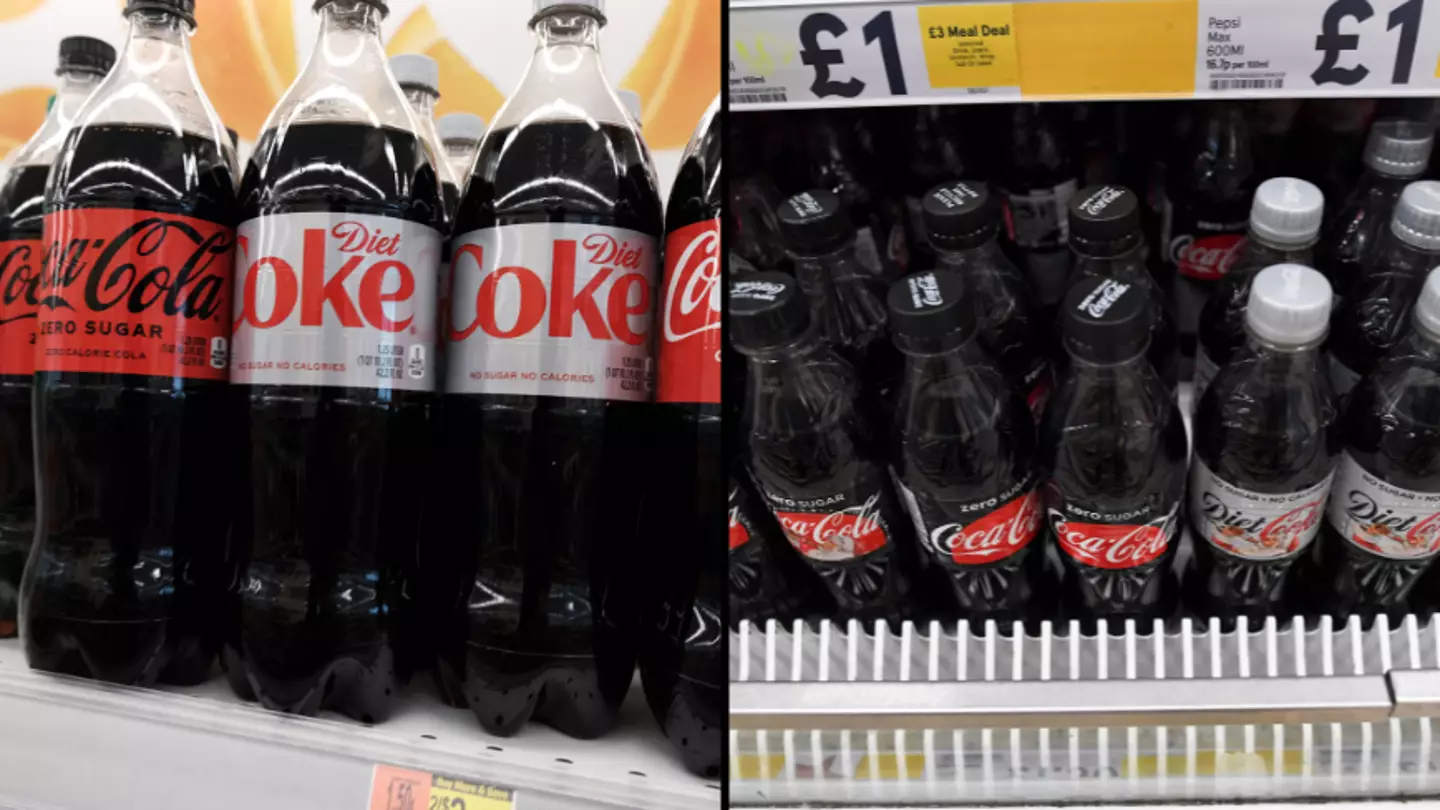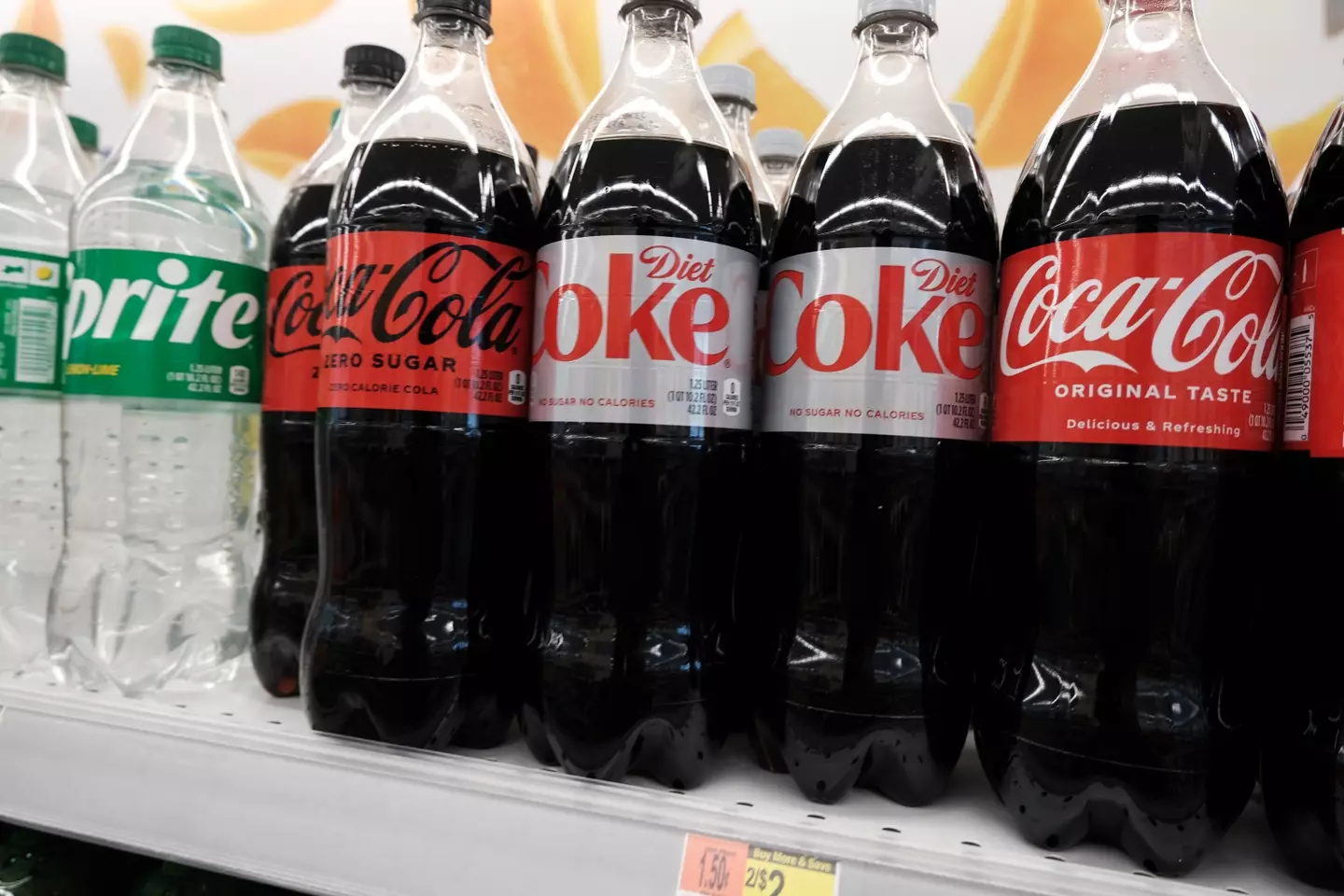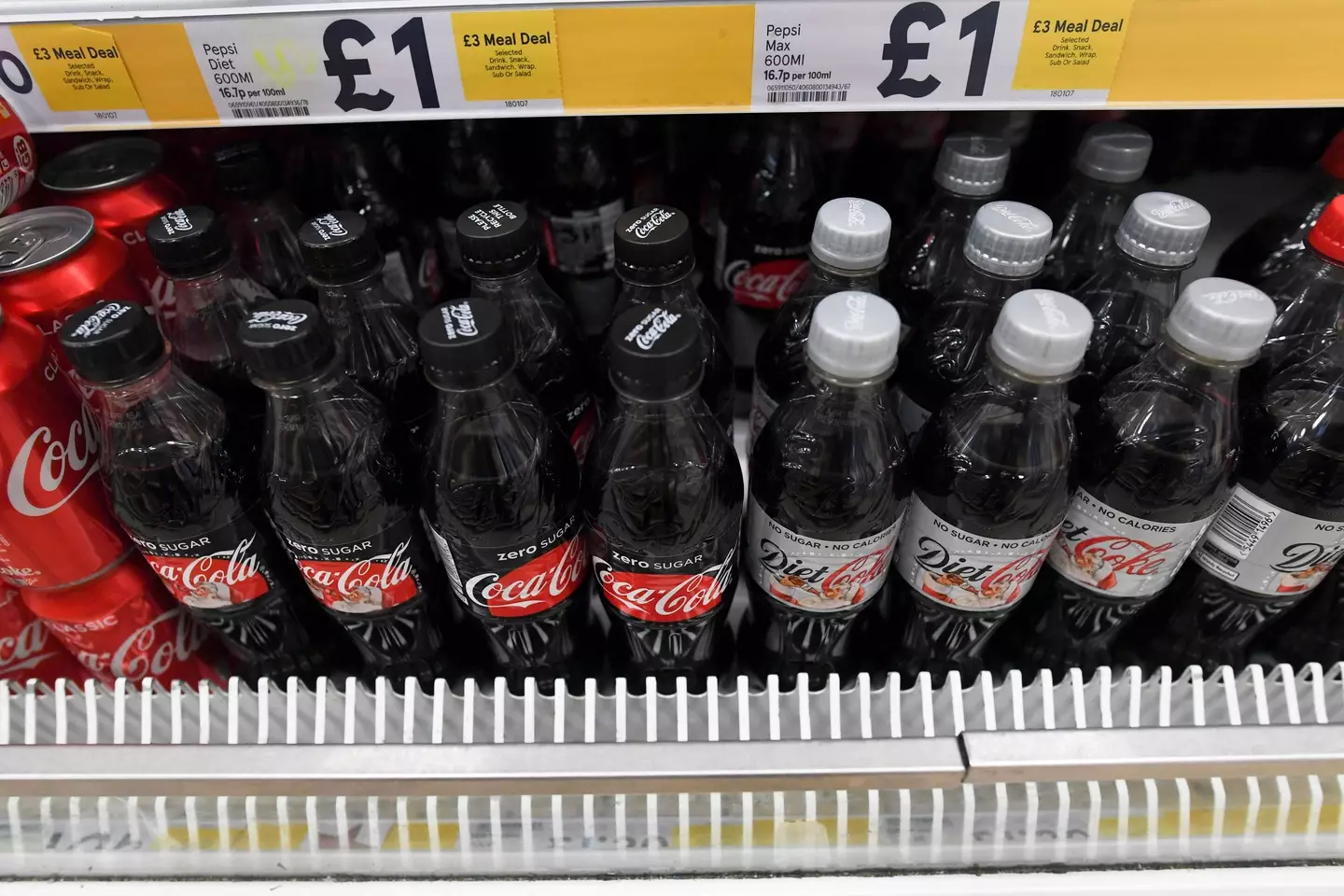
The Diet Coke and Coke Zero debate is a very real thing.
For instance, when you order a Coke Zero at dinner and the waiter replies: "Diet Coke?" it's like they think we don't know the difference.
And no, it's not just your mind playing tricks on you, because Coca Cola has stated that the two drinks do taste different.
"Both drinks are sugar free and calorie free. Coca‑Cola zero sugar looks and tastes more like Coca‑Cola original taste, while Diet Coke has a different blend of flavours which gives it a lighter taste," the drinks company said.
Advert
However, the reason why the drinks taste different is what we're really here for.
Toronto-based dietician Abbey Sharp has explained that both drinks are largely the same, apart from 'one key difference'.

Taking to TikTok (@abbeyskitchen), she said: "Both contain aspartame, caffeine, natural flavours, and caramel colours, etc.
Advert
"The key difference is that Diet Coke is sweetened exclusively with aspartame, whereas Coke Zero also contains a sweetener called acesulfame potassium or Ace-K.
"While the wellness community will call both of these sweeteners complete poison, the reality is, they’re both FDA-approved and have been deemed safe in moderation."
Now, you might have read that aspartame consumption has been linked to an 'increase risk of cancer', but it seems that more research is needed.
READ MORE:
Advert
SCIENTIST EXPLAINS WHY MCDONALD'S COKE 'TASTES BETTER THAN ANYWHERE ELSE'
'SAFE LIMITS' SET ON AMOUNT OF DIET COKE YOU CAN DRINK WITHOUT BEING HARMED
Professor Lawrence Young, an oncologist at the University of Warwick told The Sun: "The association of aspartame consumption with increased risk of cancer remains controversial.
“Many different studies have found no clear association or a very slight effect which is complicated by other underlying conditions such as diabetes.
Advert
“Like many of the risks associated with diet and disease, this provides a warning that we need to be cautious about over-consumption of artificial sweeteners as we do excess eating of processed meat and other types of junk food.”

The International Agency for Research on Cancer (IARC), WHO’s cancer research unit, said that the idea that aspartame might cause cancer (specifically liver cancer) in people, is based on limited evidence.
The Director of the Department of Nutrition and Food Safety for WHO said: “The assessments of aspartame have indicated that, while safety is not a major concern at the doses which are commonly used, potential effects have been described that need to be investigated by more and better studies.”
Advert
The US Food and Drug Administration (FDA) also echoed: “Scientific evidence has continued to support the FDA’s conclusion that aspartame is safe for the general population when made under good manufacturing practices and used under the approved conditions of use.”
Featured Image Credit: Spencer Platt/PAUL ELLIS/AFP via Getty ImagesTopics: Food And Drink, Health